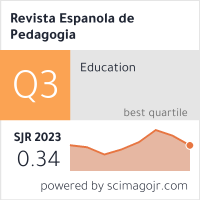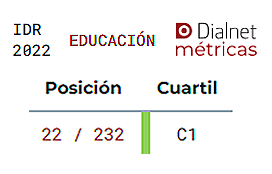Abstract
Online Principal Certification and Advanced Teacher Degree programs have taken up an incresingly larger share of graduate enrollments in U.S. colleges of education. This paper discusses how a major educational leadership department expanded its residence programs to incorporate online leadership degrees. Having started in 2008, the program now has current enrollments of over 80 students including students from outside the U.S. The paper discusses overcoming obstacles such as faculty resistance, meeting state licensing and accreditation requirements, staffing online courses, funding and marketing. Leadership for the program came from the department and college where online learning was increasingly seen as a priority.
This is the English version of an article originally printed in Spanish in issue 275 of the revista española de pedagogía. For this reason, the abbreviation EV has been added to the page numbers. Please, cite this article as follows: LeTendre, G., & Squires, T. (2020). Integración de programas de máster online y presenciales en educación | Integrating online and residential master’s programs in education. Revista Española de Pedagogía, 78 (275), 53-72. doi: 10.22550/REP78-1-2020-05
Referencias | References
Akiba, M., & LeTendre, G. (2009). Improving Teacher Quality: The U.S. Teaching Force in Global Context. New York: Teachers College Press.
Akiba, M., & LeTendre, G. (Eds.) (2017). The Routledge International Handbook of Teacher Quality and Policy. New York: Routledge.
Allen, I. E., & Seaman, J. (2016). Online Report Card: Tracking Online Education in the United States. Babson Park, MA: Babson Survey Research Group.
Becker, S., Gereluk, D., Dressler, R., & Eaton, S. E. (2015). Online Bachelor of Education Programs Offered in Colleges and Universities Throughout Canada, the United States, and Australia. Calgary: University of Calgary. Retrieved from http://hdl.handle.net/1880/50986
Boggess, L. B. (2008). Home Growing Teacher Quality: District Partnerships with Urban Teacher Residencies (Doctoral dissertation). The Pennsylvania State University, University Park, PA.
Boggess, L. B. (2020). Innovacion en la capacitación docente online: un modelo organizacional para brindar apoyo a largo plazo a la docencia online | Innovations in online faculty development: an organizational model for longterm support of online faculty. Revista espanola de pedagogia, 78 (275),71-85. doi: 10.22550/REP78-1-2020-01
Bui, Q. (2014, May 9). What's Your Major? 4 Decades Of College Degrees, In 1 Graph. NPR. Retrieved from https://n.pr/2P7U3Sp
Clinefelter, D. L., & Aslanian, C. B. (2016). Online College Students 2016: Comprehensive Data on Demands and Preferences. Louisville, KY: The Learning House, Inc.
Dede, C. (2006). Online Professional Development for Teachers: Emerging Models and Methods. Cambridge, MA: Harvard Education Press.Dede, C., Jass Ketelhut, D., Whitehouse, P., Breit, L., & McCloskey, E. M. (2009). A research agenda for online teacher profesional development. Journal of Teacher Education, 60 (1), 8-19.
Fuller, E., & Schrott, L. (2015). Building and Sustaining a Quality Stem Teacher Workforce: Access to Instructional Leadership and The Interruptions of Educator Turnover. In G. LeTendre & A. Wiseman (Eds.), Promoting and Sustaining a Quality Teaching Workforce (pp. 333-366). Bingley: Emerald Group Publishing.
Kennedy, K., & Archambault, L. (2012). Offering Preservice Teachers Field Experiences in K-12 Online Learning: A National Survey of Teacher Education Programs. Journal of Teacher Education, 63 (3), 185-200.
LeTendre, G., & Wiseman, A. (Eds.) (2015). Promoting and Sustaining a Quality Teaching Workforce. Bingley: Emerald Group Publishing.
Lieberman, A., & Friedrich, L. (2010). How Teachers Become Leaders. New York: Teachers College Press.
McLeod, S., & Richardson, J. W. (2014). School administrators and K-12 online and blended learning. In R. E. Fertig & K. Kennedy (Eds.), Handbook of research on k-12 online and blended learning (pp. 285-302). Pittsburgh,PA: ETC Press.
National Center for Educational Statistics (2017). Digest of Education Statistics. Washington, DC. Retrieved from de https://nces.ed.gov/programs/digest/
Sadykova, G., & Dautermann, J. (2009). Crossing cultures and borders in international online distance higher education. Journal of Asynchronous Learning Networks, 13 (2), 89-114.
Seaman, J. E., Allen, I. E., & Seaman, J. (2018). Grade Increase: Tracking Distance Education in the United States. Babson Park, MA: Babson Survey Research Group.
Snyder, T. D., de Brey, C., & Dillow, S. A. (2016). Digest of Education Statistics 2014. Washington, DC: National Center for Educational Statistics. Retrieved from https://nces.ed.gov/pubs2016/2016006.pdf
Spillane, J. P., Parise, L. M., & Sherer, J. Z. (2011). Organizational Routines as Coupling Mechanisms: Policy, School Administration, and the Technical Core. American Educational Research Journal, 48 (3), 586-619.
Stack, S. (2015). Learning Outcomes in an Online vs Traditional Course. International Journal for the Scholarship of Teaching and Learning, 9 (1), 1-18. doi: 10.20429/ijsotl.2015.090105
Wenner, J., & Campbell, T. (2017). The Theoretical and Empirical Basis of Teacher Leadership: A Review of the Literature. Review of Educational Research, 87 (1), 134-171.
Citación recomendada | Recommended citation
LeTendre, G.,
&
Squires, T.
(2020)
.
Integrating online and residential master’s programs in education.
Revista Española de Pedagogía, 78(275).
https://www.revistadepedagogia.org/rep/vol78/iss275/12
Licencia Creative Commons | Creative Commons License
Esta obra está bajo una licencia internacional Creative Commons Atribución-NoComercial 4.0.
This work is licensed under a Creative Commons Attribution-NonCommercial 4.0 International License









